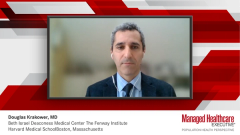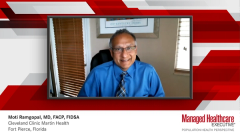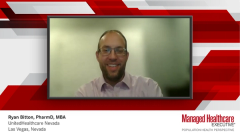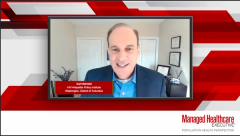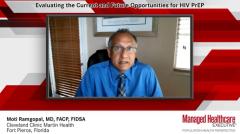
Battling Inequities in Access to PrEP
Carl Schmid describes the steps that can be taken to reduce inequities in PrEP uptake, focusing on community and provider education.
Episodes in this series

Carl Schmid: There’s so much that can be done to address the inequities in PrEP [pre-exposure prophylaxis] uptake. We need a concerted, federally funded program focusing on 2 things: the community, to make sure that those who should be taking PrEP are aware of it, and provider education. We need providers, particularly in the South, who treat the people who are in most need of PrEP to center on them and talk with their patients about sex, the stigma, and why they should be talking about PrEP. But also the opportunities for PrEP. The opportunity for PrEP starts with a discussion about HIV. It starts with an HIV test. We need doctors to be talking about those things. It’s not just PrEP; it’s preventing and treating HIV. If you have a patient who’s living with HIV, you have to begin by talking with them about it and then get them to take a test, which they have to agree to.
We’re advocating a nationwide PrEP grant program that would build up on the existing systems that the CDC [Centers for Disease Control and Prevention] has right now. They have grants that go out to the states to community-based organizations. We need to build on that. They can’t spend money on PrEP drugs right now. They’re just starting to spend money on PrEP laboratory services. We need to ramp up the education components. We need to ramp up the availability of PrEP services and pay for PrEP itself.
Then there’s another component with the community health centers. There are 1400 community health centers around the country that serve predominately lower income people. We’ve just started a PrEP program there, but it’s only reaching about 150 clinics. We need to ramp those up and we need to ramp it up around the country. There are some bills in Congress right now that have been introduced to establish these PrEP grant programs. We’re also anxiously awaiting what’s in the President’s budget. I think that he will focus on PrEP as well. We need to ramp up community outreach, provider outreach, and provide PrEP, particularly for those who are underinsured or without insurance.
This transcript has been edited for clarity.
Newsletter
Get the latest industry news, event updates, and more from Managed healthcare Executive.

